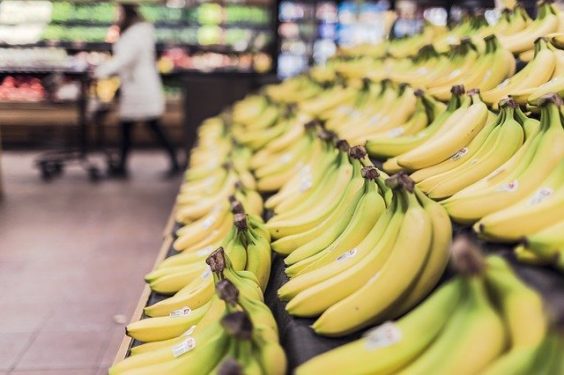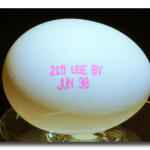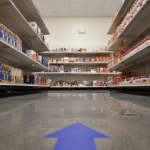
Grocery stores these days know who you are, what you buy and how to target you with personalized advertisements to get you to buy even more. So why can’t they use that information to help keep you from getting sick – or worse?
A new report says grocery stores are doing a “woefully inadequate” job informing us of food recalls. They’ll stock the food, advertise it to us, sell it to us – but if that food turns out to pose a health hazard, well, we’re on our own.
The United States Public Interest Research Group Education Fund graded 26 grocery chains on their food recall notification procedures, in a report entitled “Food Recall Failure.” And in case the report’s title doesn’t give it away, the stores didn’t fare well.
Only four retailers – Target, Kroger, and the Kroger-owned chains Harris Teeter and Smith’s – received a passing grade. The U.S. PIRG gave them a “C” for providing “adequate information about their recall notification policies to the public.” All other chains – including Walmart, Safeway, Publix, ALDI and more – got an “F”.
When grocery products are recalled, the priority in the current food safety system is to quickly get the recalled items off of store shelves, so no more are sold. But anyone who has already purchased the product can be left in the dark. They may hear about the recall through media coverage, but they’re less likely to learn about it from the store that sold it to them. “This can leave contaminated food in pantries, refrigerators and freezers for days or months after a recall,” the U.S. PIRG report says.
The group says it mailed detailed surveys to grocery chains across the country, asking about their food recall notification procedures. Not only did the group find those procedures to be inadequate – but most grocers didn’t even bother responding to the survey. “This response is insufficient. Consumers have a right to know about food recalls,” the group said.
From what it was able to find out from stores that did respond to the survey, and from digging around the stores’ websites, U.S. PIRG found that more than half claim to have some kind of program to directly notify customers about recalls via email or phone. But in many cases, the group says it was “unable to find out when the program is activated, how customers participate, or what information is included in the notifications.”
Other stores that claim to make recall information available to customers, don’t always make that information easy to find. “Customers shouldn’t have to go on a scavenger hunt to find out if food they recently purchased was recalled,” U.S. PIRG says.
The Food Marketing Institute grocery trade organization is disputing the report’s findings. “Will your supermarket warn you about hazardous food? Absolutely,” FMI Chief Food and Product Safety Officer Hilary Thesmar said in a statement. “Retailers utilize multiple methods of communication depending on the circumstances to communicate recalls to their customer.”
But the U.S. PIRG says retailers need to do a better job at it. Recall information should be easy to find on a store’s website. Signs should be posted at cash registers, and on the store shelves where the recalled products would normally appear. And stores should put all the information they have about you, to good use.
“Stores already use modern technology to track customers, place products, and target us with ads,” U.S. PIRG Education Fund Consumer Watchdog Adam Garber said in a statement. “There’s no reason why they can’t also keep us healthy,” by using customer data “to text, email, call, or otherwise notify a customer about a recall.” And if stores don’t do it voluntarily, the group says perhaps federal regulators should require them to.
U.S. PIRG says every year, 48 million Americans get sick from the food they eat. And 3,000 of them die. When it comes to recalling food, “stores might not be responsible for the recall, but they can make a difference,” U.S. PIRG Education Fund Consumer Watchdog Associate Dylan Robb said. “We look forward to seeing improved transparency about recall notification efforts – and improved programs.”
So the next time you hear about a food recall on the news, finding out whether you’re affected could be as easy as checking your email or checking for signs at your local store. For now, though, better take matters into your own hands and check your pantry or your freezer – just in case.
Image source: StockSnap











Some stores do contact customers who have purchased the problematic items, but not every store has a way to know that.
Many stores have dropped their “card” that was required for all speicals in the ad programs over the years in favor of lower prices/sale prices available to all, and/or programs that you only need join if you want to get things like digital coupons – in those stores they often would have no way to know who was making a specific purchase if that customer didn’t give their info.